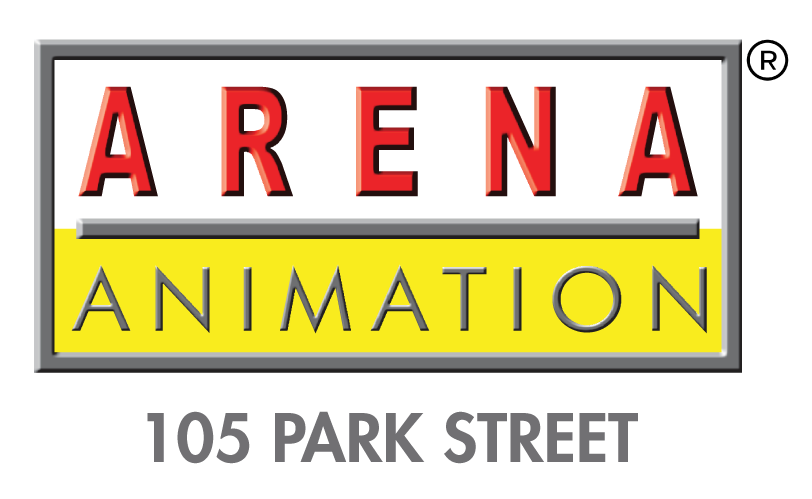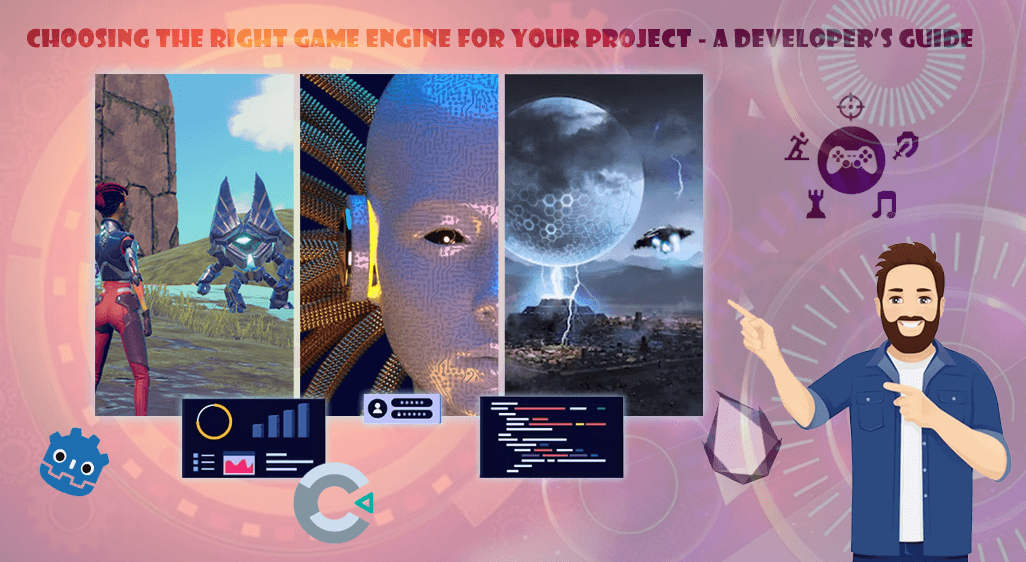Embarking on a game development journey is an exhilarating endeavor. However, one of the most pivotal decisions you’ll make is selecting the right game engine. With an abundance of options catering to diverse needs and preferences, the process of choosing the ideal engine can be a daunting one. This article serves as your guide to navigating this crucial decision and ensuring the success of your game development project.
The Importance of Defining Your Game’s Requirements
It’s crucial to establish your game’s specific requirements before stepping into the world of game engines. These specifications will serve as your compass, pointing you in the direction of the engine that precisely complements the objectives and vision of your project. Here are some important factors to think about:
Game Type
The first and foremost consideration is the type of game you intend to create. Is it a 2D or a 3D project? Different engines excel in different dimensions, so knowing your game’s type will significantly narrow down your choices.
Platform
Determine the platforms on which you plan to release your game. Are you targeting PCs, consoles, mobile devices, web browsers, or a combination of these? Some engines are better suited for specific platforms, so align your choice with your target audience.
Art Style
Consider your game’s art style and whether the engine’s rendering capabilities align with your creative vision. Different engines may offer varying levels of support for different art styles, so choose one that complements your game’s aesthetics.
Complexity
Evaluate the complexity of your game, including its mechanics, physics, and AI requirements. Some engines are better suited for simpler projects, while others can handle the demands of more complex and intricate games. Be sure to match your project’s complexity with the engine’s capabilities.
A Survey of Popular Game Engines
Now that you’ve defined your game’s requirements, let’s explore some popular game engines and their key features. Understanding these engines will help you make an informed decision based on your project’s unique needs:
Unity
Unity is renowned for its versatility and ease of use, making it an excellent choice for both beginners and experienced developers. It supports both 2D and 3D development and boasts a vast asset store and a thriving community. Unity uses C# as its scripting language, which is beginner-friendly and widely adopted.
Unreal Engine
Unreal Engine is a powerhouse known for its stunning visual capabilities, making it a top choice for AAA-level games and high-quality 3D visuals. It features a robust blueprint system for visual scripting and supports C++ for more advanced scripting needs.
Godot
Godot is an open-source engine, making it attractive to indie developers. It supports both 2D and 3D development and offers a user-friendly visual scripting system. For those comfortable with C#, this language is also supported by Godot.
Construct
Construct is primarily designed for 2D game development and stands out with its intuitive drag-and-drop interface, which requires little to no coding knowledge. It’s an excellent choice for those looking to create 2D games with ease.
Cocos2d
Cocos2d is a popular choice for 2D mobile game development, particularly on iOS and Android platforms. It offers a robust set of tools for creating engaging 2D experiences.
Community and Support: A Developer’s Lifeline
Having access to a vibrant and encouraging community can make all the difference in the world of game development. Consider the size of their communities, the accessibility of forums, tutorials, and thorough documentation when assessing game engines. A vibrant community makes it possible to solve difficulties and get help when you need it, promoting a more fulfilling development experience.
Communities for game development have been increasingly popular on websites like Discord. By using such sites, you can meet knowledgeable professionals and developers who share your interests.
The Learning Curve: From Novice to Expert
Consider the learning curve associated with each game engine, especially if you’re a beginner. Some engines offer a more straightforward entry point with extensive official tutorials, documentation, and online courses to facilitate your learning process. Others may demand more time and effort to master. Your choice should align with your familiarity with game development and your willingness to invest in learning.
Licensing and Cost: Financial Considerations
Different game engines come with varying licensing models. While some are entirely free to use, others may have licensing fees or revenue-sharing agreements, meaning you’ll share a percentage of your game’s revenue once it reaches a certain threshold. It’s crucial to understand the licensing terms and costs associated with each engine before making a decision. Factor these considerations into your budget planning to avoid surprises down the road.
Flexibility and Customization: Tailoring Your Engine
Another vital aspect to consider is the level of flexibility and customization each engine offers. Some engines provide more freedom to modify the engine’s source code, allowing you to implement unique features and optimizations. Others may limit customization options, which can be a drawback if your game has specific technical requirements. Evaluate whether the engine can accommodate your development needs and align with your vision for the game.
Your Path to Game Development Success
Choosing the right game engine for your project is a critical decision that can significantly impact your game’s success and your overall development experience. Your selection should align with your game’s specific requirements, your experience level, and your personal preferences. Take the time to research and experiment with different engines to find the one that best suits your needs.
With the right game engine and dedication to your craft, you’re well on your way to bringing your game development dreams to life. The journey begins with a single choice, but the destination is limited only by your imagination and expertise.
So, which game engine will you choose for your next game development adventure? The world of game development awaits your creativity and innovation, and the engine you select will be your trusty companion on this exciting journey.
Happy game developing!












